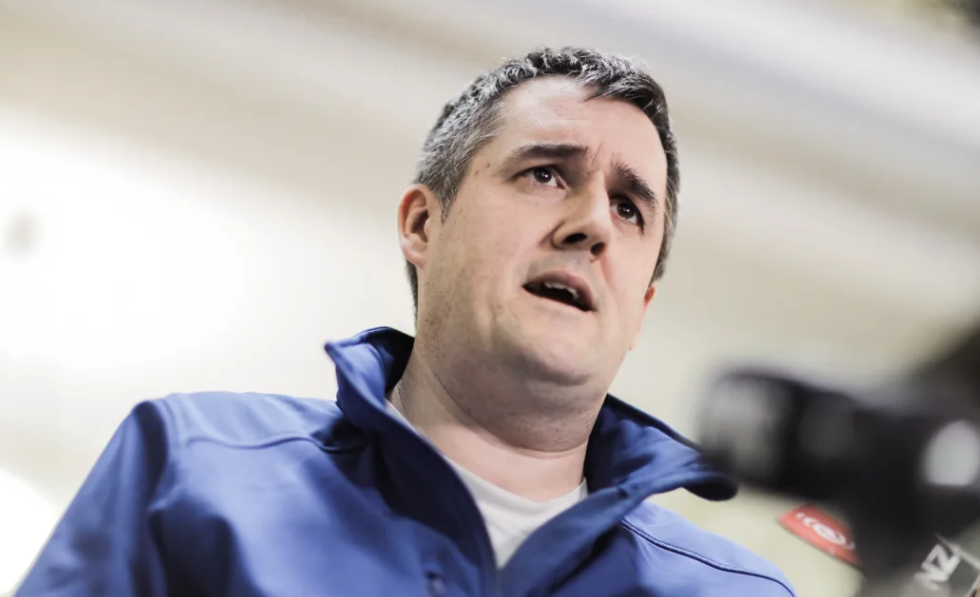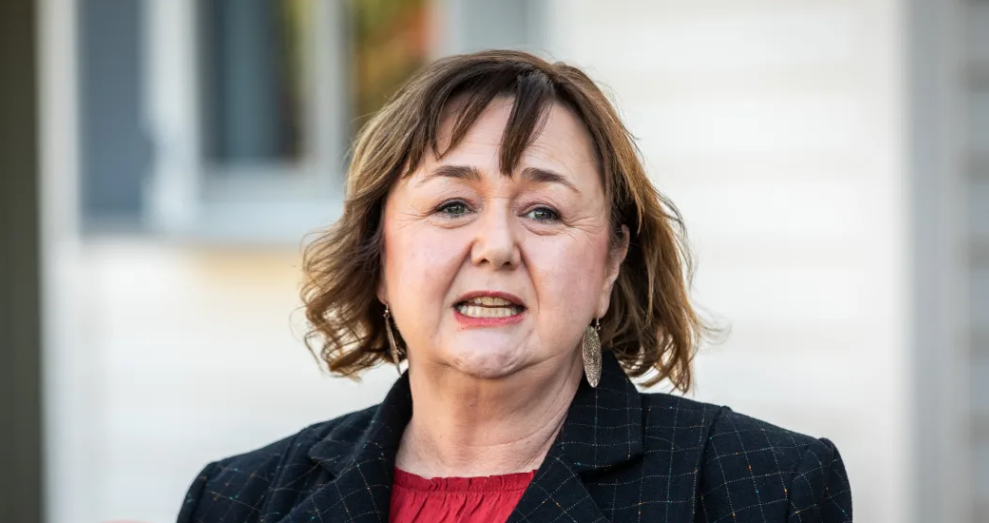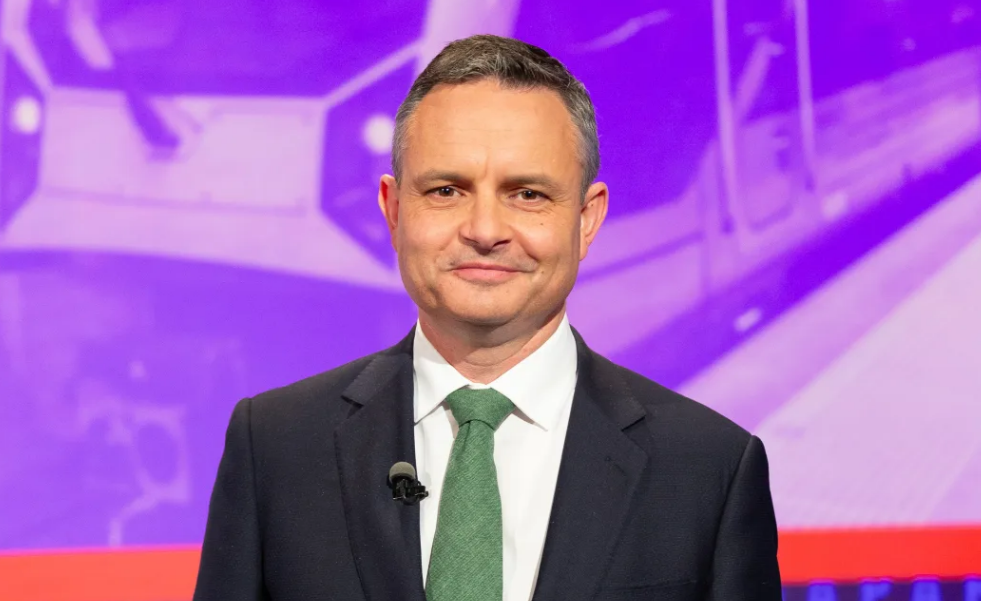
The race to form the next government is shaping up to be a tighter competition than it previously seemed, with just three days left to vote.
Two polls released on Wednesday say neither Labour nor National could govern without New Zealand First.
The 1News-Verian poll puts National up 1 point, while Labour gained 2 points; ACT is down one point, the Greens are up one, and New Zealand First is steady.
Meanwhile, the Newshub Reid Research poll shows support for National dropping 4.6 percentage points, while Labour and the Greens rose, ACT was steady and NZ First on the rise.
In both polls, National and ACT cannot form a government alone, nor can an alliance between Labour, Greens and Te Pāti Māori.
Bishop denied the party's support was shrinking, however, "it's going to be a tight election" - which was the way MMP was designed.
"A lot will depend on turnout, which way the undecided voters break and we're just asking them to vote National."

He did not accept that National leader Christopher Luxon had given the green light to NZ First supporters by saying he would negotiate with leader Winston Peters.
Asked if National had made a strategic error regarding Peters, as some commentators have suggested, Bishop said it was better to be upfront - but if it was in the national interest to approach Peters, that would happen.
Told that analysis by Newsroom showed that since the announcement, NZ First's support had risen from 5 percent to 6.7 percent on average, Bishop refused to accept it was linked to Luxon's decision.
"People have overread that decision a little bit, because actually what we were doing is just making it clear and being upfront and transparent with New Zealanders about what our preferred governing arrangements were post-election."
Even if Luxon had not decided to work with Peters, it would have continued to be a major point of interest during the campaign, Bishop said.
"You're kind of damned if you do or damned if you don't."
He believed it was still a big "what if" that NZ First would make it into Parliament.
The reason he had raised the possibility of another election two weeks ago was that he believed there were any number of "messy" scenarios after election day that might result in uncertainty.
Bishop added no one believed Labour leader Chris Hipkins' assurance that he wouldn't deal with Peters.
He said special votes might play an important role in the election outcome.
The Port Waikato by-election on November 25 had introduced "a further wrinkle of uncertainty into all of it".
The death of the Act Party candidate for Port Waikato, Neil Christensen, announced on Monday, means the by-election is required, according to rules in the Electoral Act 1993.
In response to a suggestion that National might need to form a coalition with NZ First and have ACT as the support partner, Bishop responded: "Let's just wait and see how people vote."

Voters don't want 'messiness': Labour
Labour Party campaign chair Megan Woods said undecided voters were the key to the October 14 election outcome.
"There's a lot of them out there. We are seeing it in the polls and I can tell you we're seeing it on the doorsteps and we're seeing it on the phones."
She believed some were reconsidering their decisions in the face of "messiness" and "bad judgment" in National's ranks.
"People don't want the messy government that Chris [Bishop] has been describing."
While a New Zealand Herald poll of polls suggested a 99.8 percent chance of a change to a centre-right government, Woods refused to accept this, saying Labour was seeing a surge and would be working hard until midnight on Friday trying to convince people to support them.
She referred to the nine percent of voters who still hadn't made up their minds, as revealed in one poll.
Hipkins said months ago Labour would not work with NZ First under any circumstances.
Woods was pressed on a possible rethink but maintained there were no shared values between Labour and NZ First.
"The kind of government we want to be a part of don't share enough values to go into a coalition arrangement with him."
Deputy leader Carmel Sepuloni says fundamental differences in values are why the party won't consider a partnership with Winston Peters.
Sepuloni told RNZ's First Up programme this morning that differences in attitudes towards LGBTQI and race issues are among the reasons why Labour cannot partner with parties like NZ First.

Shaw staying positive on centre-left coalition
The Greens rose by a point to 14 percent in the 1News poll and the party is up by 0.7 to 14.9 in Newshub's poll.
Co-leader James Shaw was confident that this time around the party's support would translate into votes - in contrast to some elections where support has fallen away.
He told Morning Report the Greens have a great team of volunteers and they have been receiving a good response from the public.
"I think we're going to have a great night on Saturday."
Asked about the possibility of a centre-left coalition being re-elected despite being behind in the polls, Shaw said he was keeping the faith.
In the past two elections, there had been different outcomes to what the pundits had forecast.
Shaw said there were many different ways the election could play out and he did not want to speculate on how the Greens would react to different scenarios.
He agreed the country did not want a second election, however, the Greens had helped to provide a stable government for the past six years.
"I don't know what's going to happen on election night or in the weeks afterwards but you can rely on us to be the adults in the room, no matter what happens."

NZ First to finish ahead of ACT?
Professor of politics at Massey University Richard Shaw said the most notable feature was the speed with which NZ First had moved up on ACT.
"I imagine David Seymour is feeling a little bit nervous at the moment having campaigned strongly and polled strongly for some time, that support is now dripping away, and I think what we might be looking at is ACT dropping from silver medal place down to the bronze medal place, and that would have quite significant implications for the process of government formation if that was to occur once the specials take place."
The other development was that if NZ First was removed from the equation the gap between National/ACT on the right and Labour/Greens and Te Pāti Māori on the left was also closing rapidly.
"So Winston Peters, whichever way you look at, is central to the formation of the next government."
Shaw said National's seeming loss of momentum - down 4.6 percent in the Newshub poll - must be causing unease in their camp and Luxon's strategy for dealing with Peters had backfired.
"The captain's call that he took to indicate that he would reluctantly work with New Zealand First, and the minute he did that he legitimised the intentions of those people, who might have been thinking they would quite like to go with New Zealand First but weren't sure whether or not it would be worth their while doing so.
"He gives them the green light essentially, and so that's the point in the campaign when that support starts to turn towards New Zealand First."
While there were issues around National's tax policy, "the major moment" was the Peters announcement, Shaw said.
It was not the course former leaders Bill English and Sir John Key had taken, in fact, Sir John had ruled out working with Peters during two election years.
"When Luxon doesn't do that, there's a little bit of fuzziness and a bit of a lack of clarity."
As for Labour's vow not to work with Peters was concerned, Shaw wasn't convinced.
He said in 1996 (the first MMP election) Peters negotiated with both major parties post-election, despite campaigning strongly against National, and then entered into an arrangement with them for a new government.
In 2017, it was clear NZ First supporters did not want to govern with Labour, however, Peters chose to align with them anyway.
"If it is absolutely on a knife-edge, if there is no clarity at the end of the government formation process, the conversations with National ... does Chris Hipkins, as the caretaker prime minister, pick up the phone and have a conversation with Peters? I don't know really ... some conversations that have been ruled out may well take place in a couple of weeks' time."
With advance voting numbers only half of what was recorded in 2020 at this stage, there was plenty of time for people to absorb the latest poll figures and use the information to vote tactically, he said.
Crunch time for minor parties
The minor parties have been spending the final week trying to win votes.
Freedoms New Zealand, New Zealand Loyal and NewZeal are polling around 1 percent, while The Opportunities Party is on 2 percent.
New Conservative and DemocracyNZ have not tipped 1 percent in polls of voter sentiment.
The leaders say they have dedicated support bases working long hours to connect with voters.
Small parties have fewer resources than well established, bigger parties, but their candidates and volunteers say they will celebrate their work on election night anyway.












